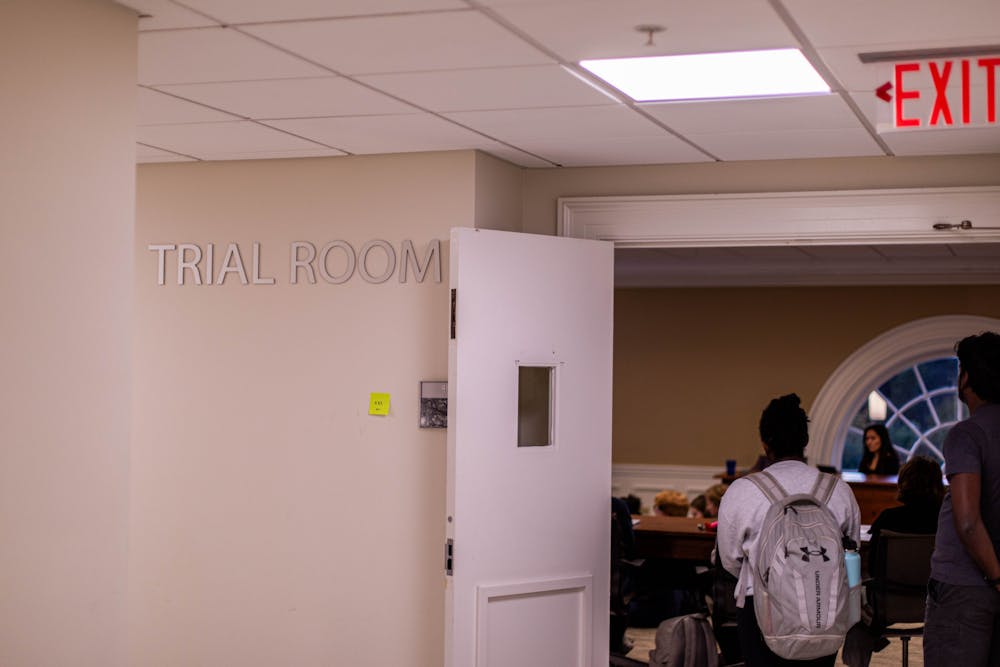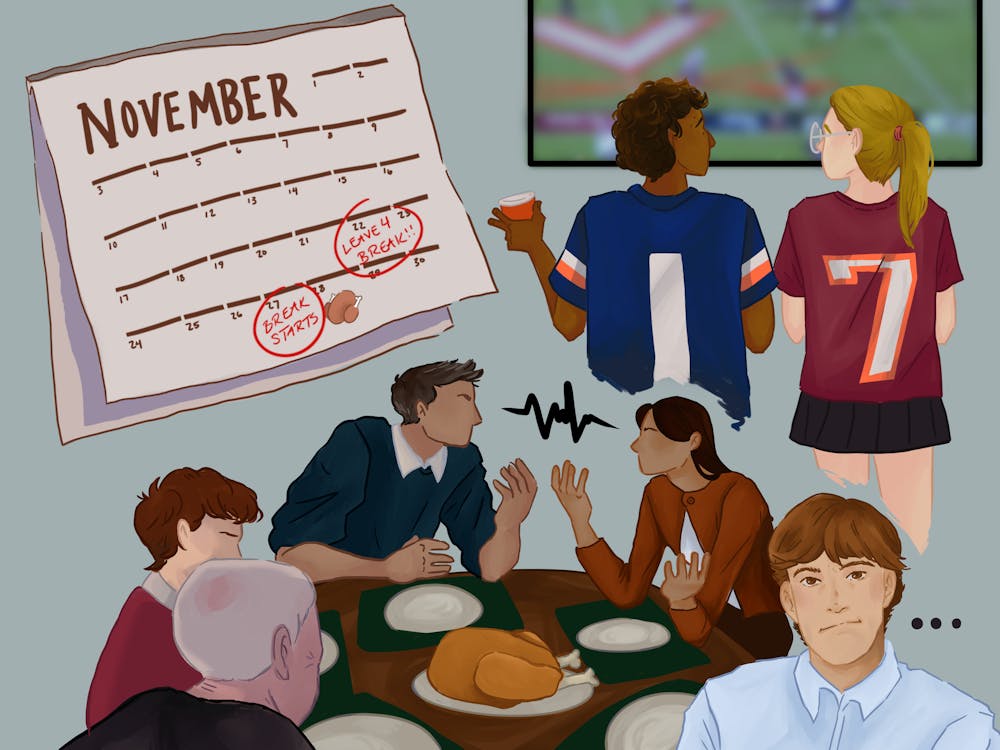The Honor Committee met Sunday in their last meeting of the semester to review bylaw proposals regarding hearing evidence — including the use of artificial intelligence detectors — and discuss plans to support students during finals. Alexander Church, vice chair for hearings and second-year Engineering student, presented the proposals, which aimed to clarify and adjust the policies regarding evidence used in the Committee’s hearings. The Committee also addressed balancing student perspectives with those of Committee representatives during panel discussions.
Discussion on the Committee’s AI policy has been ongoing. Education on the subject has been a common discussion in recent meetings, and last meeting, Laura Howard, chair of the Committee and third-year College student, said that the Committee will launch Dorm Talks next semester for the first time since the pandemic. The Dorm Talks are intended to introduce students to the Honor system and foster conversations on academic integrity and the ethical use of AI. Howard consulted the University’s Generative AI in Teaching and Learning Task Force, or GENAI, which aims to help students and faculty adjust to the use of generative AI in academics.
In a document titled “Report on Evidence at Hearing,” Church outlined three proposals surrounding what can and can not be used as hearing evidence. The Committee discussed one of them due to their capped meeting length, which called for explicitly stating in the Committee’s bylaws that AI detectors cannot act as admissible evidence. Church’s document stated that this would ensure a fair evidence process.
“Our role as administrators of the Honor System is to ensure that University students have as fair a process as we can reasonably provide,” the document stated. “It is key that in that process, we provide accused students with an unbiased panel, and it is key that Panel has all the information it needs to make the correct decision, without any information which may unduly sway it.”
Church said that from their knowledge, the Committee already considers AI detectors unreliable measures of AI use. They said that this acknowledgment should be explicitly stated in the bylaws, as confusion regarding AI policy has previously been present among Counsel in the Committee. Church said that the issue with using AI detectors as evidence is that they are unreliable tools that present inconclusive findings as facts. They said that even if the detectors undergo changes as technology advances, the underlying flaw will remain — detectors involve uncertainty and predictions about the generation of AI content.
“They’re trying to present themselves as facts, but they’re not,” Church said. “I don’t think that fundamental logic will change.”
The proposal document quotes GENAI’s statement on AI detectors — in a task report, the organization found that AI detectors are unreliable in proving that content is produced with generative AI.
“These tools are notoriously unreliable and hence using them is usually counterproductive and can be risky,” the task report states. “[GENAI] sees little chance of the detection tools improving, despite the promises of marketers.”
Second-year College Rep. Mary Holland Mason said that she is uncertain about making blanket statements on AI detectors in the bylaws. Mason said that there might be an Honor case where AI detectors are relevant, and the Committee should have the ability to admit them as evidence.
“I am unsure [about] the blanket removal of all kinds of detection software,” Mason said. “ I think on the off chance if there ever is a need for it, it might be interesting to think about not explicitly putting it in the bylaws.”
Though a vote was set to take place on Church’s bylaws, the Committee did not have time to discuss other aspects or vote, as the meetings are scheduled to last one hour. They will continue to discuss and potentially vote on Church’s propositions at future meetings.
During the remaining weeks of the Spring 2024 semester, the Committee will continue to support students through "finals pushes” initiatives. These initiatives include offering complimentary food and beverages throughout the finals period — students will have access to free meals and drinks courtesy of tabs at Bodo's Bagels and Grit Coffee on Elliewood, and they will distribute energy drinks available at library locations. The Committee will provide ongoing updates about these events on their website.
Church also said that They are interested in addressing potential knowledge gaps between panel members in the hearing process. The hearing panel determines whether an Honor offense has been committed, consisting of five randomly selected Committee representatives and seven randomly selected student panelists. Church said that because panelists come from the Committee and the student body, there are concerns about balancing student input and Committee input while deliberating — student panelists may feel pressured to defer to Committee representatives due to a perceived knowledge imbalance.
“[We’re] trying to figure out ways to instead of making it like five people and seven people make it a holistic panel of 12,” Church said. “Despite this knowledge gap, we can really all contribute equally to the conversation.”
Howard and other executive Committee members have also discussed the knowledge gap that they say can be present on the Panel for Guilt. Carson Breus, vice chair for sanctions and third-year Commerce student, said that it might be of benefit to have student panelists write down their opinions before hearing from representatives.
“Whoever speaks first frames the way that the sanctions can go,” Breus said. “I was thinking about asking people to write down their initial thoughts or sanctioning, just so they can be confident in something that they write down before someone else can potentially change their mind.”
Howard said that discussions surrounding hearing panels and policies will continue at future meetings. The next — and only summer — meeting will take place over Zoom, June 23 at 7 p.m.





